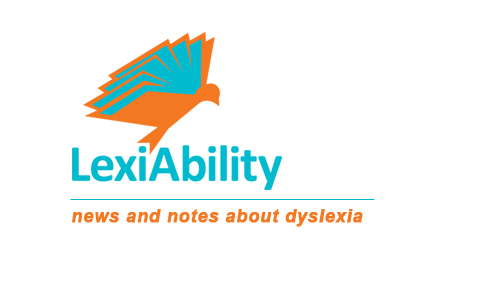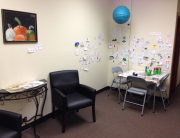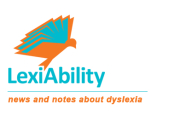Even with the snow trying to slow everything down, we have never been busier! This makes it difficult to send out a newsletter with any kind of regularity, so we encourage you to sign up for our Facebook page at https://www.facebook.com/Lexiability for more frequent news.
Radio Show:
A couple of weeks ago, I had a fantastic opportunity to talk about dyslexia assessment and intervention on KCUR. To listen to the show, please use the following link and wait a minute or two for the page to load:
http://kcur.org/post/dyslexia-brain-difference-can-be-asset#.Uuw59QLBIqs.facebook
The show was so well received that even before I left the building, I was asked to return by two different producers. I think this is really encouraging for all of our kids as this expresses interest in the strengths of dyslexia – and not just the weaknesses.
Dyslexia Support Group:
Tomorrow night, Wednesday, February 12, we will host a Dyslexia Support Group meeting at 7:30 PM, 600 W. 103rd Street, Suite 209, Kansas City, Missouri, 64114. Please RSVP to lexiability@gmail.com so we can plan accordingly.
|
Inspiration:
Instead of the research-based deficit definition of dyslexia, what if we defined dyslexia by its advantages?
Dyslexia, a specific learning ability, neurobiological in origin, typically characterized by strengths including creative expression, athletic performance, and scientific discovery. The individual with dyslexia often exhibits strength in thinking outside the box, making unexpected connections, and from an intuitive sense about the world.
That is from a brand new book called “DyslexiaLand: a Map and Guide for Students, Parents, and Educators” written by Cheri Rae.
www.DyslexiaProject.com
Parent Consultations:
Ideally, dyslexia remediation therapy should be provided by a trained and experienced remediation specialists. Our specialists are not only correctly trained in the Barton curriculum, but they also have extensive training, observation, and experience in the science of multi-sensory instruction. Reading is one of the most complicated skills of human domain, and teaching reading is rocket science.
Teaching someone with dyslexia to read is extremely difficult. This is why children languish for years in special education programs. This is also why less expensive, and less intensive methodologies don’t work. Teaching someone with dyslexia to read is also highly individualized. There are times when I will suggest that parents not tutor their own children because of stress factors at school or with homework, strong coping/compensatory skills that may make remediation tricky, unique needs of a child, or if a parent does not have the hearing, speech, or phonemic awareness required to do this critical work.
That said, many parents must provide intervention themselves, and for many valid reasons. My number one goal as a practitioner is to avoid delayed intervention for our kids. This means, that in addition to working with students, we also work with parents gratefully and gladly.
Some of my hardest experiences have been when parents come to me several months–or years–after the first phone call, having bought Barton and never proceeded with intervention. In determining why this was happening I found that almost all parents expressed that they need individualized training support outside of the training materials provided with each level.
We offer that support.
Please know that we can help you quickly get up to speed, and with confidence, so that you can effectively help your child. A parent consultation can include many services: additional training in procedures, answering specific questions about your child’s needs, demonstrating options and enhancements in multi-sensory instruction, explaining the importance and nuances of multi-sensory instruction. We can also help assess your child’s progress as you go through the system.
Our mission is to provide support for those with dyslexia and their families. Let us know how we can help you. However you decide to help your child, we want to be your biggest cheerleader!
Pam Taylor
Founder of LexiAbility








Connect with LexiAbility
RSS
Facebook
Twitter